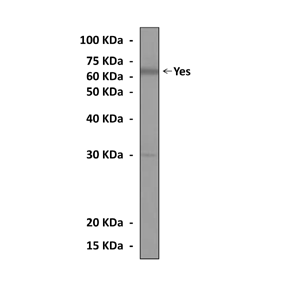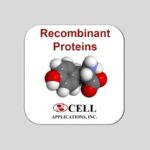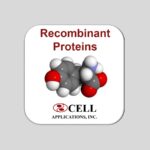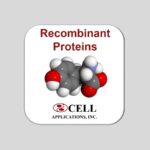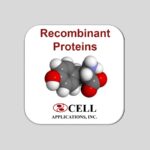Anti-Yes: Mouse Yes Antibody
Mouse Yes Antibody: Mouse Yes Antibody
Size: 100 ul
Price: $472.00
Description
The c-yes proto-oncogene, the cellular counterpart of its viral form, v-yes (originally found in the genomes of two avian retroviruses), encodes a nonreceptor-type protein tyrosine kinase. The c-Yes protein is highly homologous to the c-Src protein tyrosine kinase: their C-terminal halves encode the kinase domains, which share 90% amino acid sequence identity, and their N-terminal SH2 and SH3 domains share 84% identity. c-Yes expression is high in mammalian neuronal cells and epithelial cells, particularly in basal keratinocytes. The expression of c-Yes appears to be modulated during keratinocyte differentiation and carcinogenesis.3 The kinase activity of c-Src is known to be negatively regulated by phosphorylation of its C-terminal tyrosine 527 residue, whose surrounding sequence is well conserved in c-Yes. Given the high homology between these two kinases and their widely overlapping tissue distributions, it is of little surprise that they are capable of performing redundant functions. c-Src and c-Yes are both activated downstream of a multitude of cell surface receptors, including receptor tyrosine kinases, G-protein-coupled receptors, and cytokine receptors. Additionally, both kinases are activated during the cell cycle transition from G2 to M phase. Despite the evidence for functional overlap, several studies have also indicated specificity between c-Src and c-Yes. The two kinases differ in their sub-cellular localization, intermolecular binding partners, activation in response to cellular stimulation, and ability to mediate downstream signaling.4
2. Brickell, P. M. et al: Crit. Rev. Oncol. 3:401-11, 1993 3. Krueger, J. et al: Oncogene 6:933-40, 1991
4. Summy, J.M. et al: J. Cell Sci. 116:2585-98, 2003
Details
| Cat.No.: | CP10248 |
| Antigen: | Purified recombinant human Yes fragments expressed in E. coli. |
| Isotype: | Mouse IgG1 |
| Species & predicted species cross- reactivity ( ): | Human |
| Applications & Suggested starting dilutions:* | WB 1:1000 IP 1:50 IHC 1:50 ICC n/d FACS n/d |
| Predicted Molecular Weight of protein: | 62 kDa |
| Specificity/Sensitivity: | Detects endogenous Yes proteins without cross-reactivity with other family members. |
| Storage: | Store at -20°C, 4°C for frequent use. Avoid repeated freeze-thaw cycles. |
*Optimal working dilutions must be determined by end user.
